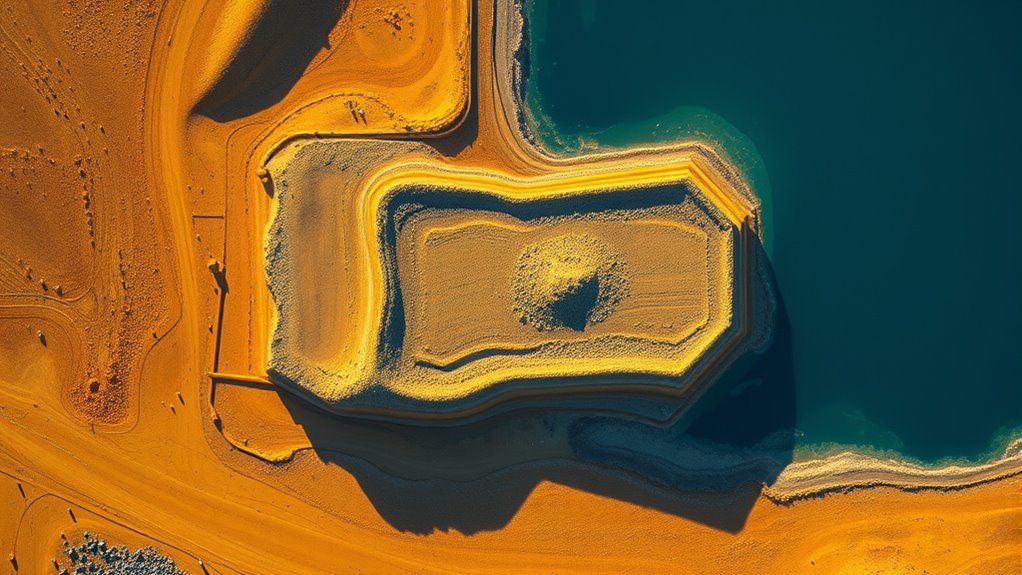Nauru offers profit potential to entrepreneurs who understand its context. Phosphate mining support, waste management (especially plastic recycling), and eco-tourism are viable. Targeted agriculture and renewable energy solutions also present opportunities. Success depends on grasping economic factors and government policies. Cultural sensitivity and building trust are vital. Adaptation to island constraints is essential for business models. Sustainable practices are crucial, benefiting community and environment. More insight lies ahead.
Main Points
- Explore waste management, especially plastic recycling, given environmental concerns and limited infrastructure.
- Capitalize on eco-tourism opportunities by developing sustainable and unique experiences for visitors.
- Invest in import substitution industries, focusing on agriculture and sustainable fishing to meet local needs.
- Support phosphate mining through equipment maintenance, logistics, and environmentally responsible practices.
- Prioritize sustainability, build trust with the community, and adapt business models to Nauru’s unique circumstances.
Untapped Business Opportunities in Nauru
Nauru, though small, presents several underexplored business opportunities. The island’s unique location and limited existing infrastructure create niches for savvy entrepreneurs.
Waste management, particularly plastic recycling initiatives, remain largely unaddressed. Given its reliance on imports, import substitution industries focused on basic necessities could thrive.
Tourism, though nascent, holds substantial potential. Eco-tourism ventures capitalizing on Nauru’s natural beauty are prime candidates.
The limited number of hotels and restaurants suggests opportunities in hospitality. Further, there is scope for businesses catering to the phosphate mining industry, such as equipment maintenance and logistical support.
Navigating Nauru’s Economic Landscape

Understanding the economic landscape is key to successful ventures. Nauru’s economy, though small, presents unique features. Phosphate mining has historically dominated, leaving a legacy of environmental and economic challenges.
The nation relies heavily on external aid and revenue from activities like fishing licenses. Understanding government policies, trade regulations, and the role of international organizations is crucial.
Navigating bureaucratic processes efficiently will minimize risks. Due diligence regarding land ownership and resource rights is vital.
Success requires a deep understanding of Nauru’s financial infrastructure and its connection to regional and global markets.
Emerging Industries to Invest In
Given the intricacies of Nauru’s economic landscape, identifying promising sectors becomes a focal point for prospective investors. Targeted agriculture, specifically cultivating crops suited to the island’s climate, presents an opportunity to reduce reliance on imports. Sustainable fishing practices and aquaculture could establish a reliable seafood supply.
Furthermore, renewable energy solutions, such as solar power, are vital, given Nauru’s dependence on imported fossil fuels.
Waste management and recycling initiatives can address environmental concerns while potentially generating revenue.
Finally, niche tourism, focusing on eco-tourism and historical sites, could attract visitors seeking unique experiences.
Insider Tips for Success
To thrive in Nauru’s business environment, some strategies may prove useful. Building strong relationships with local leaders and understanding cultural nuances are crucial. Navigating bureaucracy efficiently requires patience and local expertise.
Success often hinges on identifying niche markets underserved by existing businesses.
Adapting business models to the unique needs and limited infrastructure of the island nation is essential.
Prioritizing sustainable practices and community engagement can foster goodwill and long-term success.
Remember that building trust is paramount. Long-term investments and ethical business practices will contribute to a positive reputation. This approach often yields better results than short-term gains.
Common Questions
What’s the Cost of Living in Nauru?
The cost of living in Nauru is relatively high due to its remote location and reliance on imported goods. Residents find groceries, fuel, and other necessities to be expensive compared to other nations. Accommodation options are limited, further impacting expenses.
What Are the Visa Requirements?
Visa requirements for Nauru depend on nationality. Visitors generally need a visa, obtainable through application and specific documentation. Requirements may include a passport, application form, and proof of onward travel. Citizens of some countries may have differing stipulations or waivers.
Is English Widely Spoken in Nauru?
English in Nauru serves as an official language. However, Nauruan is more widely spoken among the population. English proficiency varies, and it is often used in government, education, and business sectors. Nauruan remains the vernacular language for daily communication.
What’s the Quality of Healthcare?
Healthcare quality in Nauru faces challenges. Limited resources and infrastructure impact service delivery. Specialized care often requires medical evacuation. Public health initiatives address prevalent conditions. However, access to comprehensive and advanced medical services remains restricted for the general population.
How Safe Is Nauru?
Nauru experiences low levels of serious crime. Petty theft can occur, so caution is advised. The island’s remote location contributes to its overall safety. Travelers should be aware of their surroundings and take basic precautions.